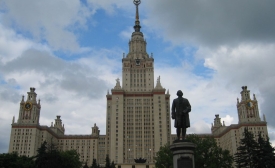geopolitics
China will position itself as free trade's new champion at an Asia-Pacific summit this weekend, with the Communist government seeking to project economic leadership as a U.S.-led Pacific Rim trade pact languishes under President-elect Donald Trump.
Kenya has recently enhanced its "soft power hegemony" through its economic diplomacy, defined as the strategic use of wide-ranging economic tools and opportunities available to the state to achieve its national interest. Since 2013, Kenya has projected its soft power through economic diplomacy, in turn, transforming the country into 'a global soft power'.
Sino-Indian relations saw an upswing when Chinese President Xi Jinping visited India in 2014, and India’s prime minister, Narendra Modi, returned the visit in 2015. Both leaders agreed to focus on improving bilateral relations through commerce and trade. China agreed to partner with India in accelerating its economic development by investing in various infrastructural projects and also setting up manufacturing facilities in India.
Indeed, the Olympic Torch may represent ‘peace, unity and friendship’ but the Games have always been about more than sportsmanship. The objective is to carry out sports diplomacy; however, the result is often dictated by power politics. This year, for instance, the participation of the first ever team of displaced athletes named ‘Team Refugees’ brings to light the instability of political regimes around the world.

Are Russian universities non-state actors or government proxies for propaganda?
The internet builds on and enlarges networks, sometimes transforming them into webs of knowledge. This ultimately brings power to civil society, which gains leverage over the political decision-making process, and at times this even translates into how governments decide to shape their international alliances. Thus through cyberspace, foreign policy is becoming more accessible to the individual.
Geographical complexities with Tibet and political complexities with India are the major factors affecting Nepal’s ‘transit diplomacy’ through which it hopes to attain prosperity. Besides the geography hypothesis and the culture hypothesis, inclusive economic institutions at home are essential for not just generating prosperity but also for simplifying geopolitical complexities.







